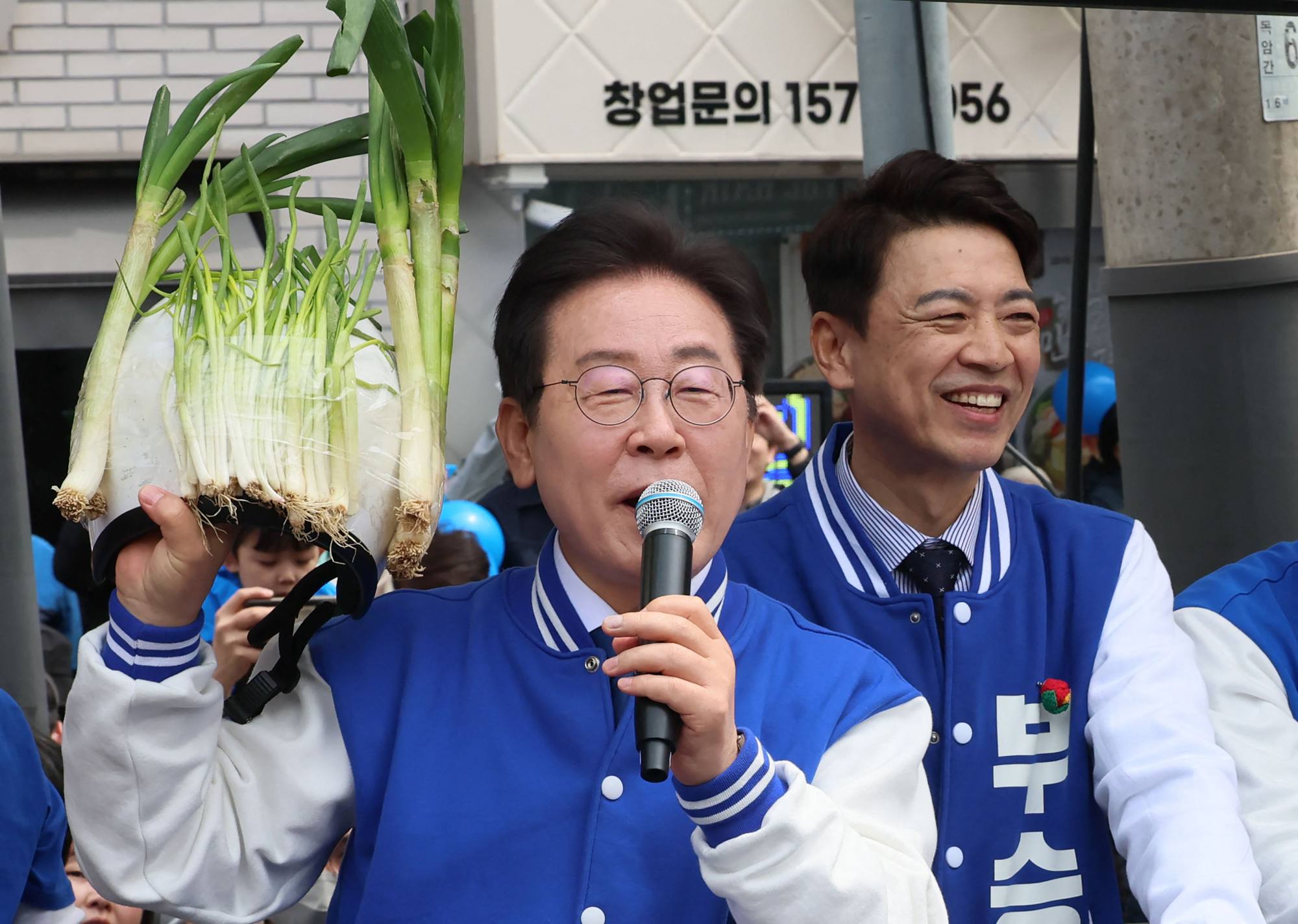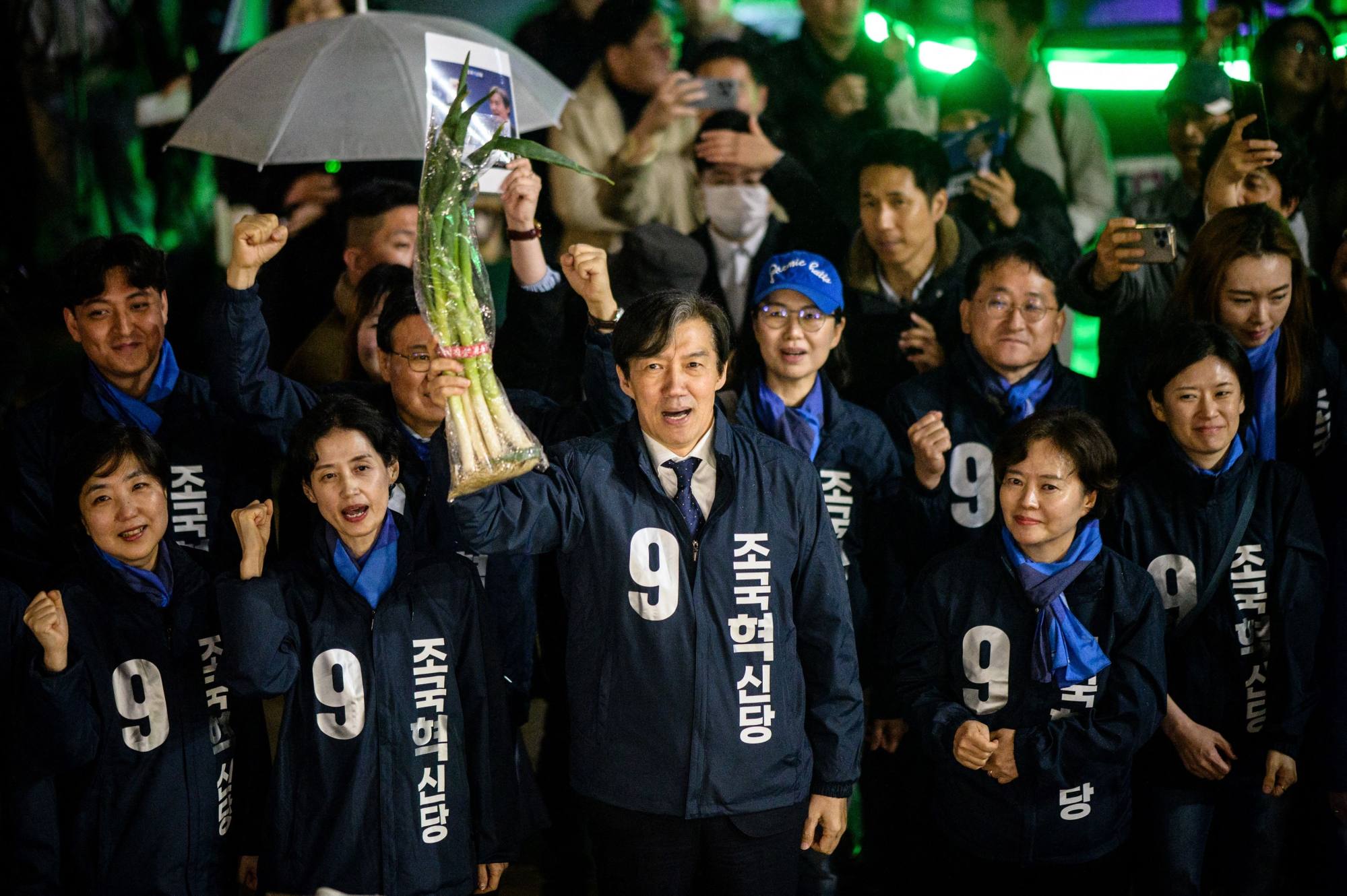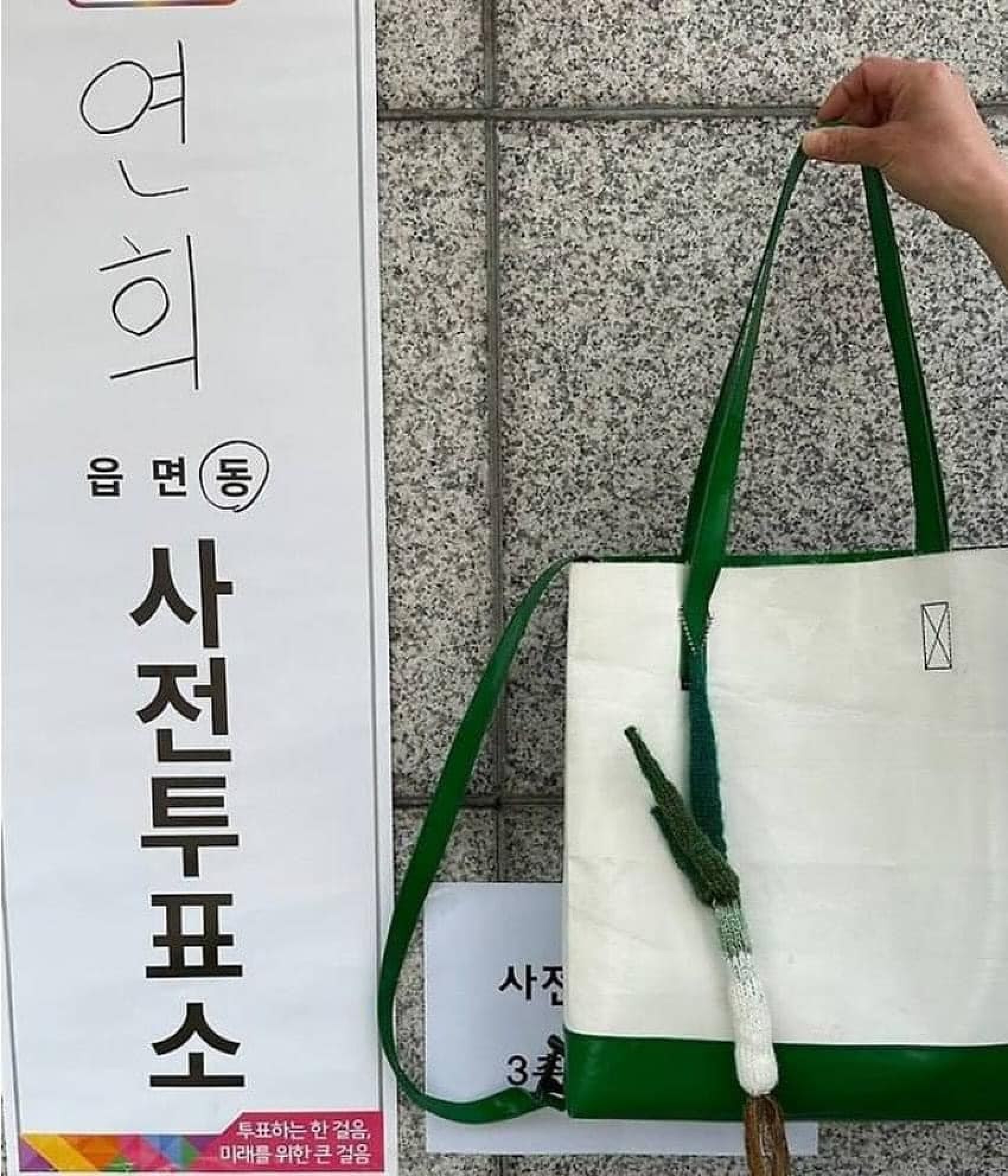The president himself voted alone in the southern city of Busan on Friday, a departure from a tradition in which presidential couples typically cast their ballots together in front of television cameras.

However, in a notable shift, economic woes – surging vegetable prices, in particular – have taken centre stage, as the government’s perceived failure to address the issue has fuelled resentment among voters.
The onion ban at voting stations stemmed from a television appearance Yoon made on March 18 that showed him holding up a bundle of spring onions costing 875 won (65 US cents) – a discounted, temporary price offered thanks to a government subsidy – and insisting: “I’ve been to lots of markets, and I would say 875 won is a reasonable price.”

For weeks, the average retail price of spring onions – a common ingredient in Korean cuisine – has hovered around the 3,000-4,000 won (US$2.2o-US$3) level, reflecting some of the highest prices in years.
Yoon’s throwaway comment drew voters’ ire and has created a mini-crisis for his ruling party, as candidates from the main liberal opposition began bringing spring onions to election rallies and accusing the president of being out of touch with reality.
And it’s not just spring onions. Produce prices in March were 20 per cent higher year on year, with apples up by nearly 90 per cent – marking the largest one-year jump since 1980.
South Korea’s National Election Commission said on Saturday it had answered “no” to a query about whether voters could take spring onions to polling stations as a gesture of protest against the government’s failure to tame food inflation.

Anyone who does bring the vegetable with them in protest will be asked to leave it outside, according to a communication the commission dispatched to election officials nationwide.
“Carrying spring onions into polling stations as a form of protest is prohibited due to its potential to influence voters and disrupt the environment necessary for fair and peaceful voting”, a spokeswoman for the commission told This Week in Asia.
Onions bought as part of regular grocery shopping are exempt from the ban, she said, with on-site election officials to judge voters’ motivations for having the vegetable on a case-by-case basis.

The commission’s directive prompted a flurry of ridicule online.
“What about chives? Are they permissible?” wrote one user of an online news platform.
Others posted pictures on social-media of shopping bags featuring key rings shaped like spring onions and T-shirts emblazoned with pictures of the vegetable.
Number worries
The intensified pre-election political bickering has ensnared another unexpected casualty, too: popular televised weekly song contest King of Mask Singer.
A special episode, initially scheduled to commemorate the MBC show’s ninth anniversary, was postponed until after the elections over fears of it being associated with a fringe opposition party whose ballot number happens to be nine.
The much-anticipated ninth-anniversary spectacle was set to feature the theme song from 1979 Japanese animated classic, Galaxy Express 999.
But concerns surfaced among MBC authorities that this could be construed as an endorsement of the Rebuilding Korea Party, which shares the same ballet number.
‘Outrageous’ nostalgia for journalist’s stabbing puts Korean media on notice
‘Outrageous’ nostalgia for journalist’s stabbing puts Korean media on notice
The incident comes after the broadcaster was reprimanded by industry watchdog the Korea Communications Standards Commission for prominently displaying the number one in blue during a weather report on February 27 to represent the day’s air pollution level, measured at one microgram per square metre in Seoul.
The commission deemed this to be too reminiscent of the Democratic Party of Korea, which is associated with the colour blue and has the number one as its electoral identifier.
Critics, including the Citizens Coalition for Democratic Media, lambasted the restrictions as an “egregious abuse of state authority to suppress” freedom of expression.
Additional reporting by the Associated Press

